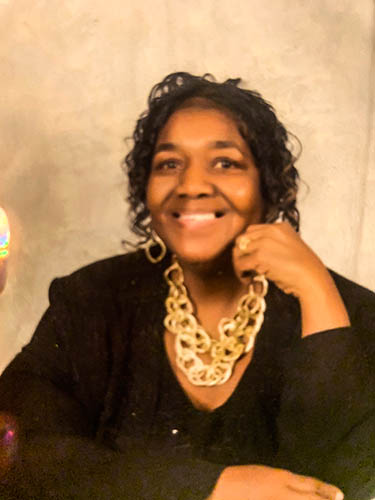By Stefanie Jackson – August is National Minority Donor Awareness Month, and in observance of the annual event, the Eastern Shore Post interviewed a local advocate for organ and tissue donation, three-time kidney transplant recipient, Joyce Williams, of Painter.
A lifetime resident of the Eastern Shore, Williams spent her early childhood in Northampton County and moved to Accomack County at age 5. She attended Central High School and graduated in 1980.
While still in school at age 15, Williams began experiencing severe back pain, but her doctor thought Williams had pulled a muscle; he did not suspect a kidney problem.
The pain became so unbearable that Williams couldn’t move. Her mother took her to the hospital, where her urine was tested and it was discovered that Williams had kidney disease.
Doctors told her she was likely born with susceptibility to kidney disease; she had no underlying health conditions such as high blood pressure.
Williams received her first kidney transplant in 1977, when she was still 15.
She had to give up her physically demanding job in the shellfish industry. As a teenager, she had worked in both a clam house and a crab house; her shift was 4 p.m. to midnight.
Williams has been disabled since she received her first transplant in 1977, but she’s alive and enjoying life.
She gave birth to her only child, Kenyatta Hall, in 1986. Hall, who gave her mother two grandsons, also lives on the Shore.
Williams enjoys spending time every day with her grandsons, who are now teenagers; they like traveling across the bay, shopping, and dining out together.
Having a kidney transplant means she can enjoy a wider variety of foods and drink plenty of water, which wouldn’t be possible if she were on dialysis.
A dialysis machine does the job that a patient’s kidneys can’t do – filtering the blood and removing waste and toxins that are normally excreted through urine.
Two needles, attached to two tubes, are placed in the patient’s arm; one tube carries blood from an artery to the dialysis machine, and the other tube carries the filtered blood back into the body through a vein.
Williams recalled that at 15, she took a cab across the bay every Monday, Wednesday, and Friday for dialysis, because it was not yet available on the Eastern Shore. Each treatment took about three hours, not including travel time to and from the medical facility.
She knew of other patients who spent 4.5 hours at a time on dialysis; the process takes longer depending on how much excess fluid is in the person’s body.
Dialysis patients are very limited in how much they can drink and are encouraged to eat ice or popsicles to quench thirst with a minimal amount of liquid. They must also restrict their consumption of foods high in sodium, potassium, or phosphorous.
Examples of foods that are off-limits to dialysis patients include hot dogs, baloney, and TV dinners, for their sodium content; orange juice, bananas, potatoes, and leafy greens, for their potassium content; and dairy products like milk and cheese, for their phosphorous content.
Williams remembered when she first became a dialysis patient, she was afraid of damaging her health and followed her diet so strictly that her weight dropped to 94 pounds. However, eating right became easier over time.
After Williams became pregnant with her daughter, Williams’ body rejected her first kidney transplant. She restarted dialysis when her daughter was three months old and eventually received a second transplant.
Williams received her third kidney transplant in 2004 from a woman who had died in a car accident, the mother of her nephew’s son. Williams will observe the 16-year anniversary of her third transplant this December.
Having a kidney transplant has allowed Williams experiences she wouldn’t have otherwise, such as taking her first plane trip in 2012 when she accompanied family on vacation in Florida.
She also attends the Anointed Word Church of God in Christ, in Melfa, which is pastored by her nephew, Samuel Smith Jr.
Her advice to anyone who is unsure about becoming an organ donor is “Pray, and look back on your life.”
“See what’s going on in life now … you got people that can’t see, people that can’t talk, can’t hear, got lung problems and heart problems.”
Helping others by becoming an organ donor is “a gift God give us,” Williams said.
She acknowledged that our organs are no good to us after we die, but they could do a world of good for somebody else.
“If you can save a life, save that life.”



